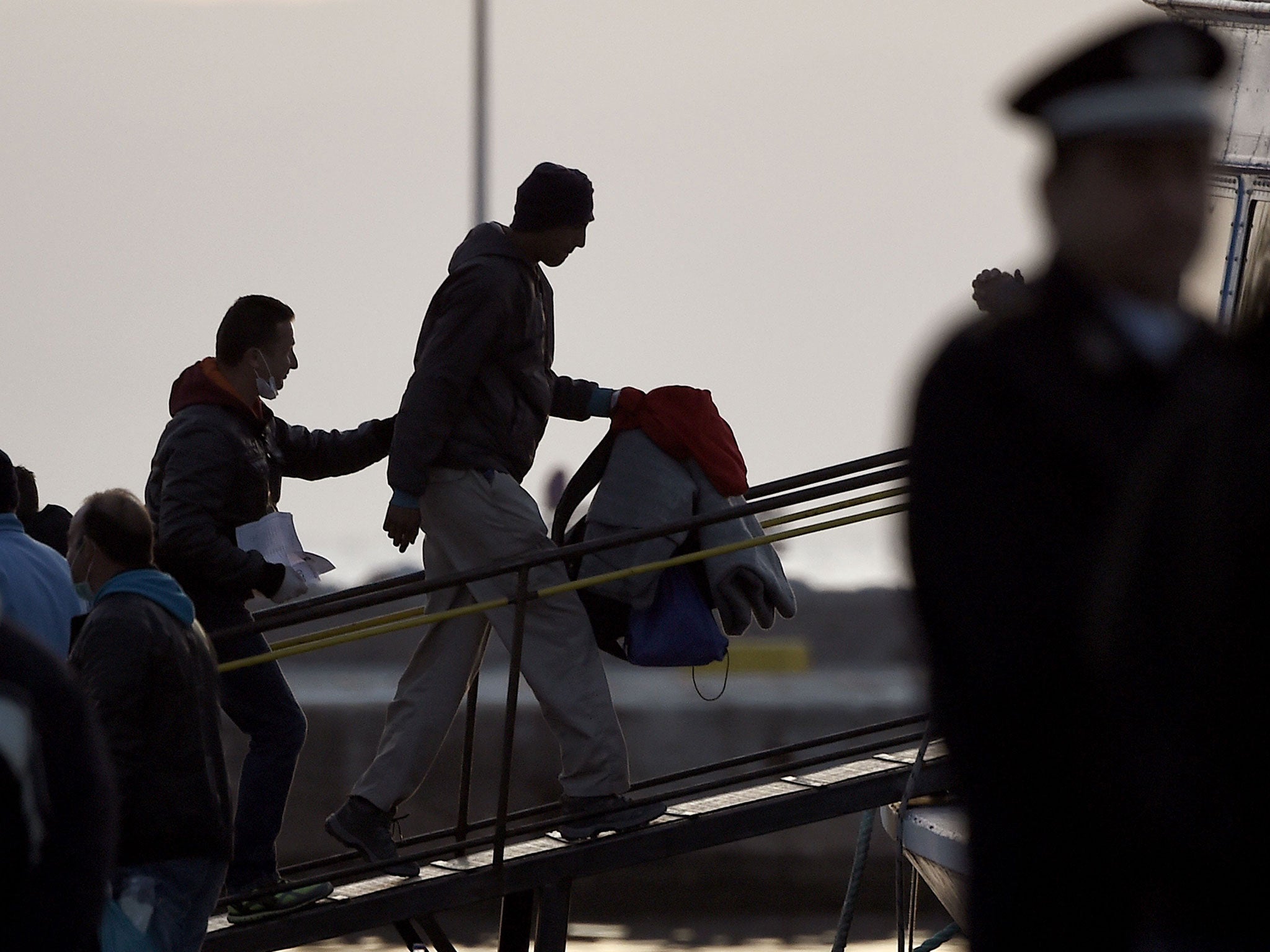Refugee crisis: First boats return rejected migrants to Turkey on Europe's 'day of shame'
A deal has been struck with Turkey to return failed applicants, but human rights campaigners say it is deeply flawed
The first three boats full of rejected refugees have arrived in Turkey as part of the EU migrant transfer deal, on what rights campaigners described as a "day of shame" for Europe.
At around the same time, a plane carrying the first 16 Syrian refugees sent directly to Germany under the terms of the deal landed in the central city of Hannover.
Frontex, the EU border protection agency, said the process taking around 200 mostly Pakistani and Bangladeshi nationals had gone smoothly.
But there was criticism over the lack of transparency surrounding the exchange, as well as the fact police appeared keen to get the jump on reporters, beginning moving the refugees some hours before scheduled.
Gerry Simpson, a senior refugee advocate with Human Rights Watch, called Monday an "historic day of shame" as the "dirty" migrant deal was implemented.
He told The Independent there was a "tremendous amount of uncertainty" about whether those being deported had been allowed access to fair asylum procedures.
Mr Simpson said: "Like a thief in the night, the EU kicked off its shameful refugee dumping deal under cover of dawn.
"Turkey has no asylum procedures in place, so whether these people are from Bangladesh, Pakistan or any other nation it can’t be said they have access to fair protection there," he said.
"We have a number of concerns right now, but number one is the concern that the EU is breaching European law by returning people who need protection to an unsafe country."
The failed asylum-seekers were expected to be returned by Turkey to their country of origin - sparking renewed concerns as to what will happen to refugees arriving from war zones.
The first vessel, the Nazli Jale, reached the port of Dikili accompanied by the Turkish coast guard.
The Lesvos and Erturk vessels arrived shortly after, bringing a total of 202 migrants from the Greek islands of Lesbos and Chios.
A Turkish government official, speaking anonymously, said there were "very few Syrians" among the passengers. The Associated Press reported migrants were loaded onto buses, addind there was no immediate word from authorities as to where they would be taken.
Just a few hours earlier there were clashes between police and local residents on Chios, after a protest was staged against the planned deportations there.
About 4,000 migrants and refugees have been detained on Greek islands since the migrant transfer agreement came into effect on 20 March.
Mr Simpson said conditions on the Greek islands themselves were another cause for concern.
"Refugees are faced with substandard humanitarian conditions, and have little access to proper food, sanitation or shelter," he said. "People are sleeping under open skies in modern Europe in 2016."

No Syrians were present in the first group of migrants coming to Turkey from Greece on Monday, Turkish EU Affairs Minister Volkan Bozkir said, adding that any who do arrive in future will be sent to the southern Turkish city of Osmaniye, not back to Syria itself.
Syrians being sent directly to Europe as part of the exchange deal would be given safe passage to Germany, from where some will be moved on to other countries, he said.
Speaking on Monday afternoon, a spokeswoman for the UNHCR defended the deal, and said the returns so far had followed "normal policy".
Melissa Fleming said UNHCR workers had spoken to some of those being deported, and found they "did not express their intention to seek asylum".
Ms Fleming said the EU-Turkey deal is expected to carefully screen people who fear for their lives or "have a well-founded fear of persecution" if they are sent home or to another country.
Additional reporting by agencies
Join our commenting forum
Join thought-provoking conversations, follow other Independent readers and see their replies
Comments
Bookmark popover
Removed from bookmarks